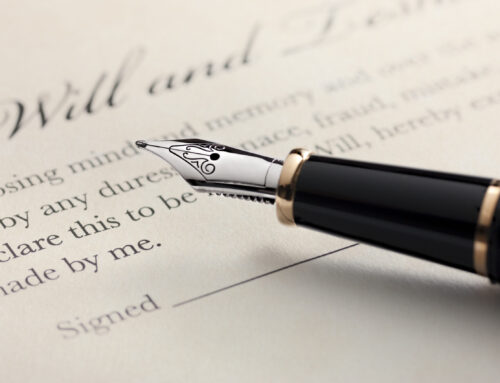It’s really important to have one, but writing a will can seem daunting. It doesn’t have to be though! Here’s everything you need to know.
What is a will and why do I need one?
Having a will is the only way to make sure that your property goes to the people and causes you care about. It is a legal document which sets out how your estate (money, property, possessions) is to be divided on your death.
How do I write a will?
- Value your estate
The first step is to make a list of your assets and debts. Assets can include:
- Your home
- Savings
- Vehicles
- Insurance
- Pension funds
- Jewellery, antiques etc.
Make sure that you have your assets valued regularly, because their value can change over time. Debts would consist of mortgages, credit card debts, loans.
2. Decide how you would like your estate to be divided
Think about who you would like to benefit from your estate. You might want to leave a special gift for someone; this can be specified in your will. You’ll also want to think about what you want to happen if one of your beneficiaries dies before you. Perhaps you’d like to leave a portion of your estate to charity? Make sure that clear details of the charity are written in your will – any confusion and the charity may not receive your donation.
3. Choose your executors
Executors are the people who sort your estate after you have died. This can involve a lot of work, so it’s important to choose them carefully. You can have up to four executors, and it’s a good idea to have at least two so that the workload can be shared. They could be friends or family, or you can choose a professional executor, such as a solicitor.
4. Write your will
You can do this yourself, but as a will is an important legal document, it is a good idea to have support. A solicitor can help you with your will, and will ensure that it is clear and valid. Not using a solicitor can lead to mistakes – and if there are mistakes, your executor will need to sort them out, with any costs reducing the value of your estate.
5. Sign your will
A will must be signed in order for it to be valid. You will need to sign it in front of two independent witnesses, who must also sign it. Your witnesses can’t be beneficiaries of your will, and it’s also not a good idea for them to be executors either.
Can I update my will?
Yes. It’s advisable to review your will every five years. If you want to make a change, don’t edit the original will. Instead, for minor changes, you can add a codicil. This is a document which you attach to your will outlining the changes. If you want to make substantial changes, it is a good idea to cancel your old will and write a new one. Again, a solicitor can help you with this.
Questions? You can contact our dedicated wills and probate team at Beeston Shenton Solicitors.




